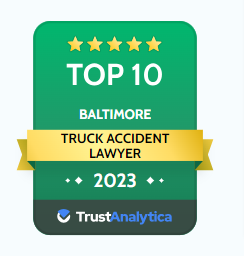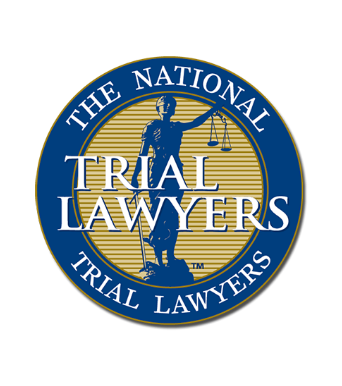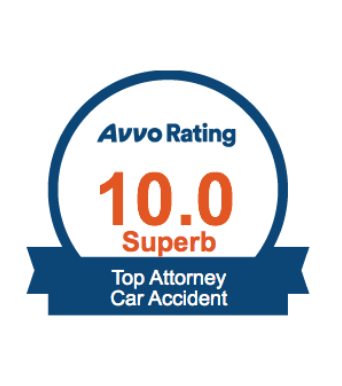Columbus, GA Personal Injury Lawyer
Victims who need compensation after sustaining personal injuries can get the damages they deserve by suing negligent parties in Columbus.
Lawsuits can cover economic and non-economic damages from an injury, so our attorneys will start tracking your losses immediately after the accident. By doing this, we can request an accurate sum when we file your complaint in court. Because Georgia does not cap victims’ compensation, victims can often make full financial recoveries. After settling or winning in court, you might get your compensation via one payment or through several structured payments. To get compensation, you must file your case before the deadline in Columbus, which is likely two years from the accident’s date unless an exception applies.
Call the Columbus, GA personal injury lawyers of Rice, Murtha & Psoras at (410) 694-7291 for a confidential and free case evaluation.
Everything You Need to Know About Damages in Columbus, GA Personal Injury Claims
Victims often incur damages from personal injuries due to negligence. Our attorneys can explain which of your damages are compensable, help you track your damages, request accurate compensation, and explain if any damage caps apply to your case in Columbus.
Compensable Damages
Compensable damages include both financial and emotional losses. The main economic damages victims can recover are medical expenses and lost wages. If you can prove additional financial losses, you can likely recover those as well. For example, victims can often get transportation costs covered if they need assistance getting to and from the hospital for treatment. In addition to economic damages, a victim’s emotional damages for pain and suffering are also compensable in Columbus.
Tracking Damages
Our attorneys will start tracking your damages from the accident right away. Give a copy to our personal injury lawyers each time you get a bill or charge from the hospital throughout your treatment. To track your lost wages due to an injury, we will note the first day you could not work because of the accident in question. We can estimate your lost income because of the accident by referring to your past employment and income information.
Tracking non-economic damages can be harder, as they do not have inherent monetary value. However, victims may track their damages from pain and suffering or emotional distress by keeping a journal or confiding in a qualified mental health professional.
Requesting Damages
We will request compensation when we file your official complaint with the court in Columbus. This is why it is important to carefully track your damages and know the full value of your case before filing. Before requesting damages, we can gauge whether or not you will incur additional damages from future medical treatment. If so, we can factor future medical and lost-wage damages into our compensation request. To support our request for future damages, we might enlist medical experts and others to testify in support of your claim.
Damage Caps
Generally speaking, Georgia does not cap compensation amounts for most injury victims. While some states cap compensation for non-financial damages, Georgia does not. Damage caps might apply if the defendant in your case is a state or government agency, so keep that in mind.
If the jury in your case decides the defendant was grossly negligent in causing your injuries, it might award you punitive damages to punish the defendant for their conduct. In these instances, juries have to heed Georgia’s cap on punitive damages, which is $250,000 under O.C.G.A. § 51-12-5.1(g) unless an exception applies.
Recovering Damages
Victims can recover compensation if they win at trial or reach a settlement agreement outside court. Often, personal injury settlements and awards are paid in structured payments. Sometimes, if defendants are financially able, they can pay lump sum settlements to victims in Columbus. If you get a structured award, our lawyers can ensure it benefits you as the victim.
Everything You Need to Know About the Filing Deadline for Columbus, GA Personal Injury Claims
You must file your case on time to recover any damages from a negligent party in Columbus. Our lawyers can determine the filing deadline for your case and see if your claim meets any of the exceptions to the statute of limitations.
The Statute of Limitations
O.C.G.A. § 9-3-33 states that all injury claims must be filed no later than two years from an accident unless an exception applies. If you try to file your lawsuit past the deadline, the court may well dismiss it, barring you from recovery of any damages whatsoever.
You should not wait until the last possible moment to file the lawsuit, even if you ultimately do so before the statute of limitations is up. Delaying your claim could welcome questions about the severity of your injuries and your need for compensation, so do not wait any longer than necessary to initiate your case.
Exceptions to the Statute of Limitations
There are some exceptions to the statute of limitations and different filing deadlines altogether for claims involving certain defendants. For example, if your claim involves a state or government agency, you might need to file within a year or give notice of your intent to sue.
Victims are not always immediately aware of injuries. This is common in medical malpractice claims and other injury lawsuits in Columbus. In cases of delayed discovery, the statute of limitations might get tolled. This could give you some leeway with how long you have left to sue a negligent party.
You should not assume that your case meets an exception to the statute of limitations before speaking with our lawyers. If you wrongly assume you have longer to file, you could miss the deadline and lose your opportunity to get compensation from a negligent party in Columbus.
Call Our Columbus, GA Injury Attorneys Today
Call Rice, Murtha & Psoras for a free and confidential case assessment from our personal injury lawyers at (410) 694-7291.













